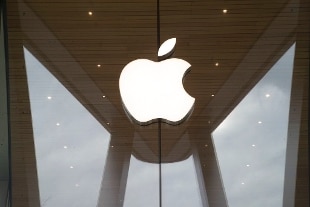- Apple: agreement with Ireland, guarantee fees
- Apple, 13 million euros from the EU, staked for the tax agreement with Ireland
- Apple: a billionaire sting is coming from the EU for the tight tax agreement with Ireland
Share
July 15, 2020 A high court in the European Union has ruled in favor of the technology giant Apple in its dispute with the EU for over 13 billion euros of arrears in Ireland. The Luxembourg court has declared that the multinational does not have to pay the 13 billion euros requested by the European Commission. The European Commission had claimed that Apple had an illegal tax deal with the Irish authorities.According to the Court, "the Commission was wrong to declare that Apple had a selective advantage and therefore, by extension, State aid". Brussels "erroneously concluded" that the Irish tax authorities "gave Apple a selective advantage" by allowing them not to charge income from sales outside America to their Irish branches. For the Court "the Commission should have shown that the income represented the value of the assets actually carried out by the Irish branches". Furthermore, "the Commission failed to demonstrate methodological errors in the disputed tax ruling that would have led to a reduction in Apple's profits in Ireland".
"Although the Tribunal regrets the incomplete and sometimes inconsistent nature of the disputed tax ruling, the defects identified by the Commission are not sufficient on their own to prove the existence of an advantage," writes the Tribunal. (
At this point, the Commission can decide (as it is likely to do) a limited appeal to the matter of law before the Court of Justice within two months and ten days of notification of the judgment. The Commission had adopted a decision on two tax decisions issued by the Irish Revenue Authority on January 29, 1991 and May 23, 2007 in favor of Apple Sales International (Asi) and Apple Operations Europe (Aoe), which were incorporated as companies under Irish law, but not Irish tax residents. approved the methods used by Asi and Aoe to determine their taxable profits in Ireland in relation to the business activities of their respective Irish branches.The 1991 ruling remained in effect until 2007, when it was replaced by the 2007 ruling. in 2007 remained in effect until Apple's new corporate structure in Ireland entered into force in 2014. With its decision, the Commission considered that the tax rulings in question constituted State aid illegally applied by Ireland declaring it incompatible with the internal market and requesting its recovery. This is a sum of 13 billion tax breaks considered illegal. Ireland (case T-778/16) and Asi-Aoe (case T-892/16) have asked the Court of the European Union to annul the Commission's decision. The Court indicated in today's judgment that the Commission erroneously declared the existence of a selective economic advantage and, therefore, of State aid to Asi and Aoe. Approves the Commission's assessments of normal taxation under the Irish tax legislation applicable in the case, in particular as regards the tools developed within the Organization for Economic Cooperation and Development, such as the principle of free competition, for the purpose to verify whether the level of taxable profits validated by the Irish authorities corresponds to what would have been obtained under market conditions.However, the Court considers that the Commission erroneously concluded, based on its main reasoning, that the Irish authorities have granted an advantage to Asi and Aoè for not having assigned to the Irish branches the intellectual property licenses of the Apple group held by AsiI and Aoe and, consequently, all the commercial revenues of Asi and Aoe obtained from the sales of the Apple group outside the American continent. According to the Court, the Commission should have shown that this revenue represented the value of the activities actually carried out by the Irish branches taking into account, in particular, on the one hand, the activities and functions actually carried out by the Irish branches of Asi and Aoe and, by the on the other side, the strategic decisions taken and implemented outside of these branches. Furthermore, the Court considers that the Commission did not demonstrate, by virtue of its alternative reasoning, methodological errors in the judgments which would have led to a reduction in the taxable profits of Asi and Ape in Ireland. Although the Court deplores the incomplete and sometimes inconsistent nature of the contested tax rulings, the shortcomings identified by the Commission alone are not sufficient to prove the existence of an anti-competitive advantage (within the meaning of Article 107 (1) of the Treaty). The Court considers that the Commission did not demonstrate, by virtue of its alternative reasoning, that the tax rulings at issue were the consequence of the discretion exercised by the Irish tax authorities and that, consequently, a selective tax advantage had been granted.

